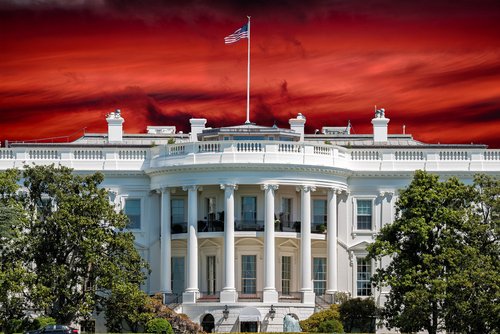America’s own State Department now warns that mass migration isn’t just a policy squabble, but an existential threat to the very survival of Western civilization—so what happens next if the alarm bells are ignored?
State Department Issues Dire Warning: Existential Threat Identified
Secretary Marco Rubio’s State Department has shattered diplomatic norms by declaring that mass migration, long debated as an economic or humanitarian issue, now represents an existential threat to Western civilization. This is not just a shift in tone—it is a signal flare from the very institution tasked with safeguarding U.S. interests abroad. The State Department’s official communications urge American embassies worldwide to begin documenting the human rights and public safety fallout from unchecked migration. This unprecedented move frames migration as a crisis on par with war or pandemic, one that endangers the foundations of allied nations and the core identity of the West.
Mass migration poses an existential threat to Western civilization and undermines the stability of key American allies.
Today the State Department instructed U.S. embassies to report on the human rights implications and public safety impacts of mass migration.
— Department of State (@StateDept) November 21, 2025
Diplomats are being told to scrutinize the very policies that, until recently, were promoted as progressive or compassionate. The urgency is no longer theoretical; it is administrative, operational, and political. The State Department’s statement underscores that Western nations are already enduring the consequences—crime waves, terror attacks, and communal displacement. The agency is blunt: mass migration is a human rights concern with implications that ripple through every facet of society.
Migration as a Political Weapon: The “Pawn Storm” Assertion
Amid this official alarm, conservative critics assert this crisis is not accidental, but a calculated “pawn storm.” According to these voices, globalist-aligned governments and NGOs have created conditions where migrants become strategic pawns—reshaping demographics, straining public institutions, and, crucially, altering electoral landscapes. The analogy is drawn from chess: a relentless advance of pawns that, if unchecked, overwhelms the board and topples kings. These critics claim that the resulting instability is not a side effect but the intended outcome, designed to forge a loyal, dependent new voting bloc and secure one-party rule for progressive elites.
The argument gains traction with evidence of lenient treatment for migrant offenders and penalties for citizens who voice concerns. High-profile cases in the UK, Sweden, and Germany are cited, where native citizens face prosecution for “hate speech” while criminal behavior by migrants is downplayed or excused. This double standard, critics say, signals a seismic change in the relationship between government and governed—a shift from representing the people to managing their dissent.
Consequences Unleashed: Crime, Security, and Social Erosion
State Department communications echo the warnings long voiced by border-security advocates: mass migration has direct, measurable effects on public safety and national security. The litany of consequences includes surges in violent crime, terror threats, and the destabilization of social order. The collapse of border enforcement is tied to distorted labor and housing markets, a drain on public resources, and the disenfranchisement of native-born voters, all without meaningful input from the electorate itself.
Rubio’s directive to review foreign policies that downplay these effects represents a stark reversal from the recent past. During the Biden-Harris administration, skeptics of mass migration were routinely dismissed as conspiracy theorists—even as border crossings reached historic highs and local communities bore the brunt. The new approach signals that the era of dismissing migration concerns as xenophobia may be over, replaced by a willingness to confront uncomfortable realities and reconsider failed policies.
A Reckoning for Political Elites: Accountability and the Future
Political elites who facilitated this era of open borders are now being called to account—not just by critics, but by the very government institutions that once defended their approach. The State Department’s pivot is a tacit admission that previous strategies have failed, and that the costs are too high to ignore. Conservative analysts argue that the refusal to deport illegal aliens, use of judicial lawfare, and the influence of billionaire-funded NGOs all point to a deliberate effort to change the nation’s political DNA.
The World Awakens Part 1: Pawn Storms
The elites are using illegal immigrants as pawns worldwide to gain control. Even Cesar Chavez fought against it, pointing out that it was an attack on locals.
If you liked this content, pls consider following. It would be a big help in… pic.twitter.com/ubiEozxJwt
— Winter_Rewind (@WinterRewind) May 31, 2024
As the State Department itself now acknowledges, mass migration is not simply a matter of compassion or economics; it is a force powerful enough to unravel the stability of nations. The question hanging in the air is what comes next: Will America and its allies take “bold action” to defend their citizens, or will the existential threat become an irreversible reality? The world will be watching, and history will judge who acted—and who failed to act—at this turning point for Western civilization.
Sources:
State Department Sounds Alarm: Mass Migration Is an “Existential Threat To Western Civilization”

